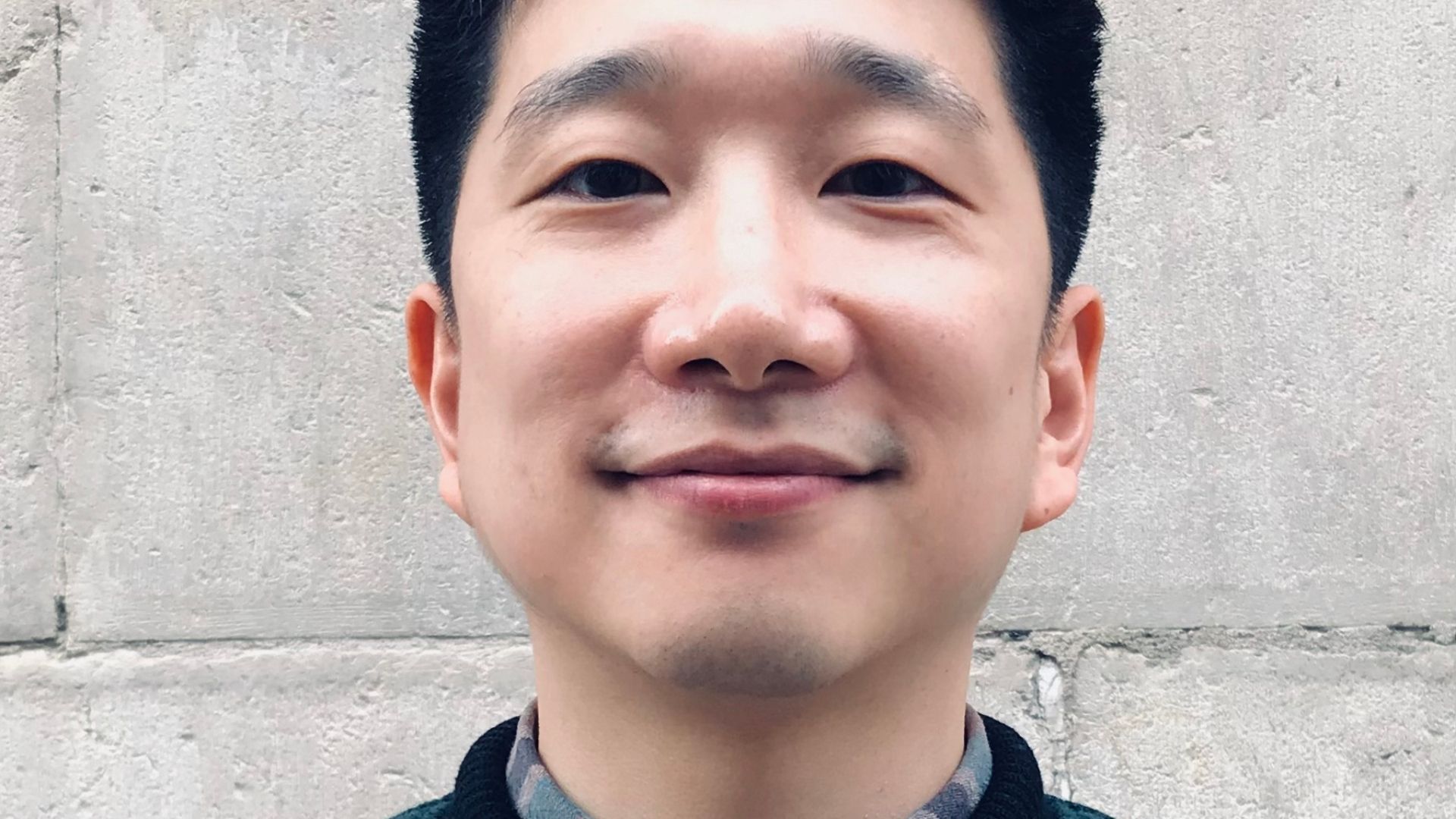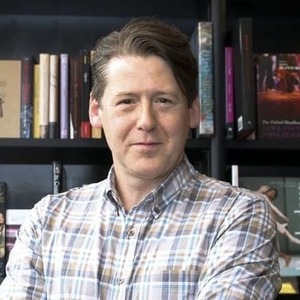You are viewing your 1 free article this month. Login to read more articles.
Anton Hur discusses how the road to publication for a translator is rarely smooth
With Sang Young Park’s Love in the Big City and Bora Chung’s Cursed Bunny, Anton Hur became the first translator to be double Booker International-longlisted in the same year, with Cursed Bunny advancing to the 2022 shortlist. He talks about his approach to his work and the role of the translator in the road to publication.
Can you explain how you work and approach translation? Does your approach change from book to book depending on that voice? And is there a lot of back and forth with the author?
My initial approach to translation was to find the translations that no-one wanted to do. All the “easy” translations—the breezy contemporary whatnots—were being snapped up by established translators whom Korean institutions were more eager to put forward than someone like me: a non-American, non-British, non-white, 100% ethnic and legal Korean. There’s a white translator who débuted at the same time as me and she was (and is) constantly given authors and books to translate while I was given nothing. I had to either audition for every single thing, which is fine, but more often than not I wasn’t even invited to the auditions. I had to make my reputation taking on work other translators did not want to take on. For example, a very famous translator told me he didn’t take on The Court Dancer by Kyung-sook Shin because it was “too damn long”. My translation career, which existed almost 20 years before I published my first book and was fairly lucrative, was built on the fact I never said no to a job just because it was too difficult. I took real pride in that.
It soon became apparent that no matter how many problems I solved for other translators, it was never going to advance my own career in any meaningful way. I realised that it didn’t matter if I was the best translator in my field or not, I still needed to create my own job—getting the job is part of the job, some might say the biggest part. So I actively sought writers who would do well in English and came up with Bora Chung and Sang Young Park. They are both incredibly talented writers, but Bora was way, way outside the mainstream of the Korean literary establishment, and Sang Young was just starting out. No translator wanted to handle his work, probably because of the queer content matter and because he wasn’t a bestseller in Korea yet. In terms of voice, they’re both very cosmopolitan in their reading, their writing style and their general outlook. I could hear how their voices would sound in English immediately. I always joke that Sang Young Park writes Anglo-Saxon sentences, and this amuses him immensely because he is a big fan of English writers.
I have almost zero back and forth with my writers. I would only have questions about the text if my authors were bad writers and I needed them to clarify what they meant, but I don’t translate bad writers.
Is it a different process or discipline when you are doing your own writing compared to what you do as a translator?
This is a really smart question that almost no-one has bothered to ask, and the answer is no. They are almost exactly the same to me. I just write down what first comes to mind and then edit later. Translation takes a bit longer than writing for me because I have to actually read something beforehand. The principle both ways is that I’m not consciously doing the translating or the writing, it’s my subconscious that does it, and I have to be attentive enough to catch what rises to the surface of my consciousness. And then edit the hell out of it once I reach the end of the manuscript, of course. I realise this is very new age-y, but I seem to be doing all right so far, and the writers whose careers I want to emulate recommend this method. It’s not like I want to be a journalist or write historical fiction, so it works for me.
One of the overarching themes coming out of our translation issue is how proactive the translator has to be, doing extra work that I think even a lot of people in the book trade would assume agents or the rightsholders should be doing.
It is ridiculous, the amount of work translators do. We have some terrific agents working in the Korean-to-English pipeline, and there are more and more editors working in the Anglosphere who can read Korean books, but it is still a huge uphill battle trying to sell editors, who are bombarded with great manuscripts, on a book they can’t read. Would you buy a car you can’t test drive, especially when you can test drive a thousand other cars?
Editors have to make that decision on every manuscript that’s not in English, Italian, French, German or Spanish. Chinese is the second most-read language in the world but I don’t know how many editors in the Anglosphere can read a whole novel in Chinese. This should put the onus of sales on agents, but most in the Anglosphere can’t read in Korean either, and Korean agents usually don’t have the connections to sell a book overseas. Who gets stuck with the work then? The translators.
We’re the only ones who can read in both languages and talk directly to all parties involved. Some extremely savvy translators, like Lawrence Schimel or Daniel Hahn, even bring their far-reaching networks to the table. They know who is looking for what kind of book at any given moment. I’ve tried to model my practice after such translators, creating pitch packets, doing the actual pitching at events like the American Literary Translators’ Association conferences, meeting with editors and publishers to understand what they’re looking for and what they might be interested in. With the Pantheon sale of Djuna’s Counterweight, I met with the editor at ALTA and was in post-pitch meetings; I created pitch packets to help sell that book, and for the editor to help him sell it in-house. I took a meeting during my vacation because I was so determined to land this book. I then featured the book in a radio broadcast and gave a transcription of it to the editor. Did I mention I was determined? I was determined. It’s coming out next summer-ish.
Can you talk about Smoking Tigers: what you do and why you set it up?
Smoking Tigers is an extremely loose agglomeration of individual Korean translators united under one website and Slack channel. We are really a bunch of translator friends who were sharing information and workshopping together anyway, and after seeing [translator collective] Starling Bureau in action one year, [Toronto-based translator] Sophie Bowman suggested we set up a collective our-selves. If you tap one of us, you’re basically tapping into all of our expertise, and having a brand helps people see that.
What drew you to translating in the first place, and was it hard to break into?
I got into it because it looked like the most amount of money for the least amount of effort. I have a law degree, but having seen what my sunbaes [someone who is ahead in the pecking order at work or school] and cohort go through, I had zero desire to work as a lawyer. I’m just too lazy. Translation isn’t easy, but people kept telling me that I was good at it and very fast compared to others in my language combination, which meant I had a comparative advantage over other translators. I could take on a lot and still deliver on time, which meant more money.
Literary translation is difficult to break into, but translation itself, certainly my language combination, is an absolutely glorious career. I was a simultaneous interpreter as well as a translator and that was a job that literally took me
around the world. Translation enabled me to pay rent on my Seoul apartment, regularly visit my high-school friends in Bangkok, buy any book I ever wanted and support my husband through grad school. Translation also enabled me to take risks and enter literary translation, which is a precarious subset of translation that I was ready to quit every day from 2018–21. I would say, depending on the language combination, it’s still a fairly easy career to break into. The work itself is hard, but if you’re good at it, you can make bank while having lots of fun. The clients I have had! The work I’ve been entrusted with! I have seen some things. You get to see so many different people, their pass-ions, their precious hard work. It’s great. It’s humbling.
Korean literature translated into the Anglophone world seems to be having a moment. Why do you think that is?
Do you know what I really think? It’s because Koreans don’t believe in forgiveness or redemption. We believe in revenge. Cursed Bunny, “Squid Game”, “Parasite”: we’re not talking about forgiving the bad guy at the end of the story, we’re about giving them a good kicking when they’re down. And that’s what the world needs right now. It needs to kick the bad guys when they’re down. Britons might be asking about your bad guys: Why is Prince Andrew a free man? Why does Boris Johnson still have his job? It’s not just non-British people asking these questions. They see the ending of “Parasite” and they’re like, “You know, maybe the tone isn’t quite correct, but maybe...” Koreans do not believe revenge is a dish served cold, we serve it on fire and spinning through the air. Maybe that’s what the world really needs right now, not bullshit Christian forgiveness..
Are there some as-yet-untranslated Korean authors that we in the UK should know about?
Even the ones that are translated are barely translated, but I am mystified Serang Chung has never been published in English in book form
Bio
Seoul-based Hur was born in Stockholm and raised in Hong Kong, Ethiopia and Thailand, but mostly in Korea, where he has lived for 30 years. His first translation was Kyung-sook Shin’s The Court Dancer (Pegasus, US) and he has six translations due in 2022 and 2023. He is a member of Smoking Tigers, a collective of Korean-to-English translators, founded in 2017.








